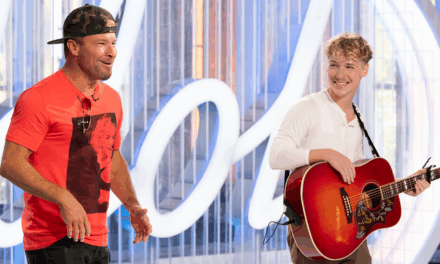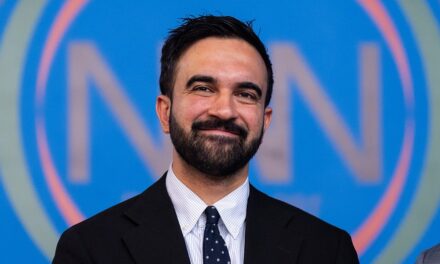In a recent statement that has garnered considerable attention, commentator Dave Rubin expressed alarm about the potential implications for the Jewish community in New York City should Democratic mayoral candidate Yusef Mamdani win the mayoral race. During a heated segment on his show, Rubin urged Jewish residents to “get the hell out” of the city if Mamdani is elected, igniting a firestorm of reactions across social media platforms.
The context surrounding Rubin’s comments stems from concerns about Mamdani’s past statements and policies that some perceive as unfavorable toward Israel. As a candidate who identifies with progressive values and has openly criticized aspects of U.S. foreign policy, Mamdani has faced scrutiny, particularly from more conservative circles. Rubin’s remarks highlight the fears and tensions that exist within the community regarding politicians’ attitudes toward Israel and Jewish identity.
Rubin’s comments were made during a segment discussing the implications of various political candidates’ platforms. He stated that the Jewish population should consider leaving if they feel threatened or unwelcome, a sentiment that reflects growing anxiety about safety and representation in urban centers like New York City. The comment appears to have struck a chord, resonating with some while igniting controversy for others who claim that such rhetoric can foster division and panic without constructive dialogue.
The internet has erupted with mixed responses to Rubin’s pronouncements. Supporters argue that he is highlighting a genuine concern for safety and security, particularly in light of rising antisemitism in various forms across the United States. They believe that drawing attention to such issues is necessary for the Jewish community to mobilize and ensure their voices are heard in political spheres.
On the other end of the spectrum, many critics have condemned Rubin for what they view as alarmist rhetoric. They argue that encouraging people to leave their homes is a drastic and unfounded solution to political disagreements. Instead of running away from challenges, they assert that communities should confront them through dialogue and civic engagement.
Mamdani’s campaign has thus far focused on themes of inclusivity, social justice, and community empowerment. Yet, the backlash tied to Rubin’s comments points to a polarized atmosphere within New York City politics. This increased partisanship underscores the complexities of local elections where identity, safety, and progressive policies collide.
The tension surrounding the mayoral race has highlighted broader issues concerning the Jewish population’s place in progressive movements. Within progressive spaces, criticisms of Israel often come from a place of advocating for marginalized voices — yet such criticisms can make Jewish communities feel alienated or attacked. Rubin’s comments reflect a looming fear among some that their commitment to social justice might come at a cost to their sense of security and belonging.
For many Jews in New York, the city serves as a historical haven, a vibrant cultural hub where they can express their identity freely. However, recent years have seen rising concerns over occurrences of anti-Semitic attacks, ranging from graffiti and vandalism to physical violence. This rise in antisemitism, combined with the shadows of political discourse that associate Jewish identity with broader geopolitical conflicts, raises stakes in how communities respond to leadership choices.
Political observers note that Rubin’s comments may inadvertently affect voter behavior. New York has a rich tapestry of diverse communities, and how candidates approach identity politics could sway the electorate in unpredictable ways. Rubin’s exhortations could resonate with voters who prioritize personal safety and seek assurances from their candidates regarding community protection and unity.
However, it’s also essential to recognize that Jewish voters are not monolithic. Many within the community support progressive candidates, viewing their policies as aligned with their values regarding equity, social justice, and human rights. Thus, reactions to Rubin’s comments could deepen divides within the Jewish community, making it more crucial for candidates to foster dialogue and address these nuanced concerns head-on.
The mayoral race also serves as a microcosm of larger societal tensions that traverse the nation. As political discourse becomes more polarized, issues like hate crimes, identity politics, and community safety take center stage in local elections. The stakes cannot be understated; these issues affect not only political outcomes but also the daily lives of residents and how they perceive their place within their neighborhoods and cities.
Mamdani’s campaign, like those of other progressive candidates, has focused on the importance of civic inclusion, advocacy for marginalized groups, and building a coalition that embraces diversity. As competition heats up in the lead-up to the election, it remains to be seen how he will respond to concerns raised by figures like Rubin and how such discourse influences the broader electoral landscape.
While Rubin’s comments may have sparked immediate controversy, they also underscore a pressing need for productive dialogue between marginalized communities. Addressing fears of antisemitism, particularly within the context of the progressive-left, requires sustained engagement and a collective commitment to unity and constructive criticism. Building bridges between different communities can counteract the divisive narratives that sometimes surface in political arenas.
As the election approaches, New York City residents are faced with important decisions that will shape their city for years to come. The stakes are high, and how candidates address community concerns will likely be critical to their success. Engaging in real conversations about safety, identity, and representation is essential to ensuring that all voices are heard and that New York remains a place where diverse communities can coexist and thrive.
In the meantime, Rubin’s comments serve as a reminder of the volatility inherent in today’s political climate. Encouraging voters to flee rather than confront challenges raises pertinent questions about the nature of political discourse in contemporary society. As narratives of division and fear continue to permeate the public discourse, finding pathways towards unity may prove to be one of the most significant challenges for New York City and beyond.
































